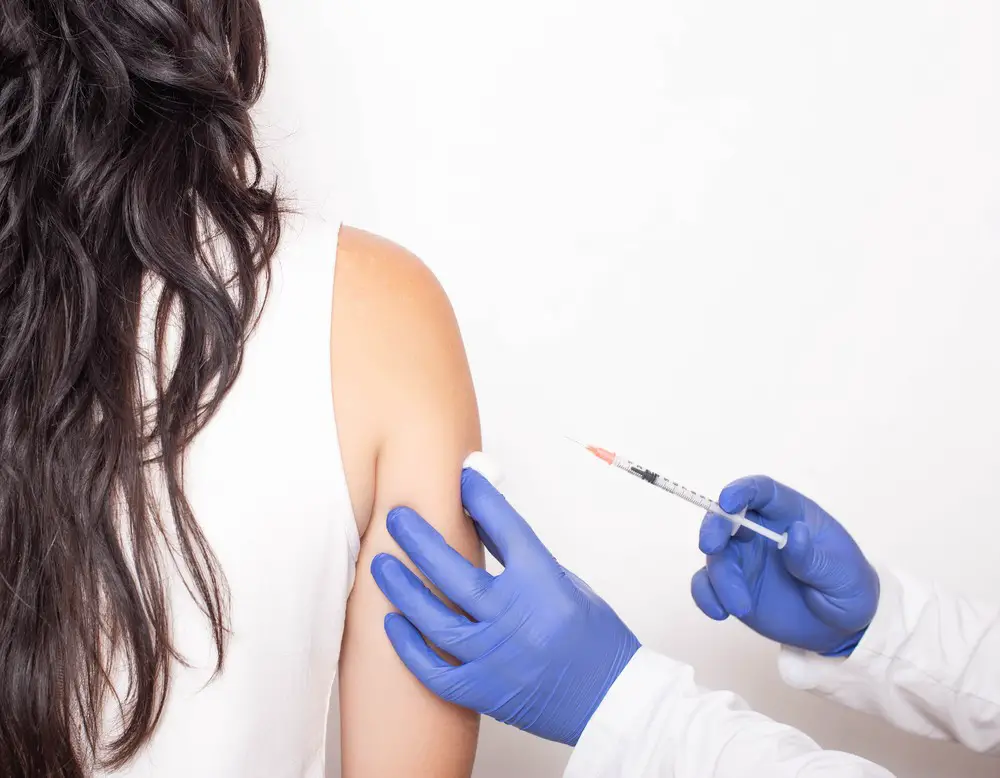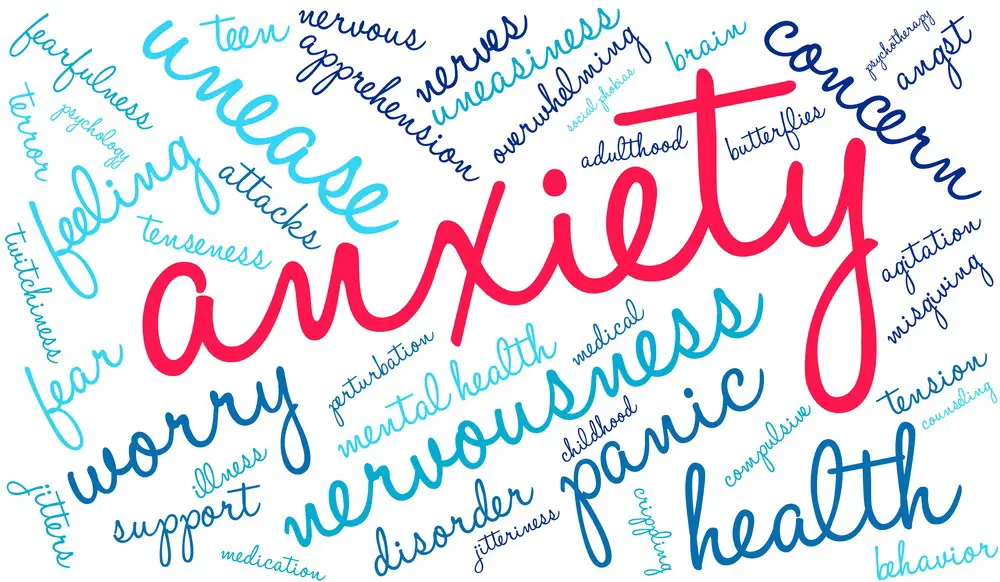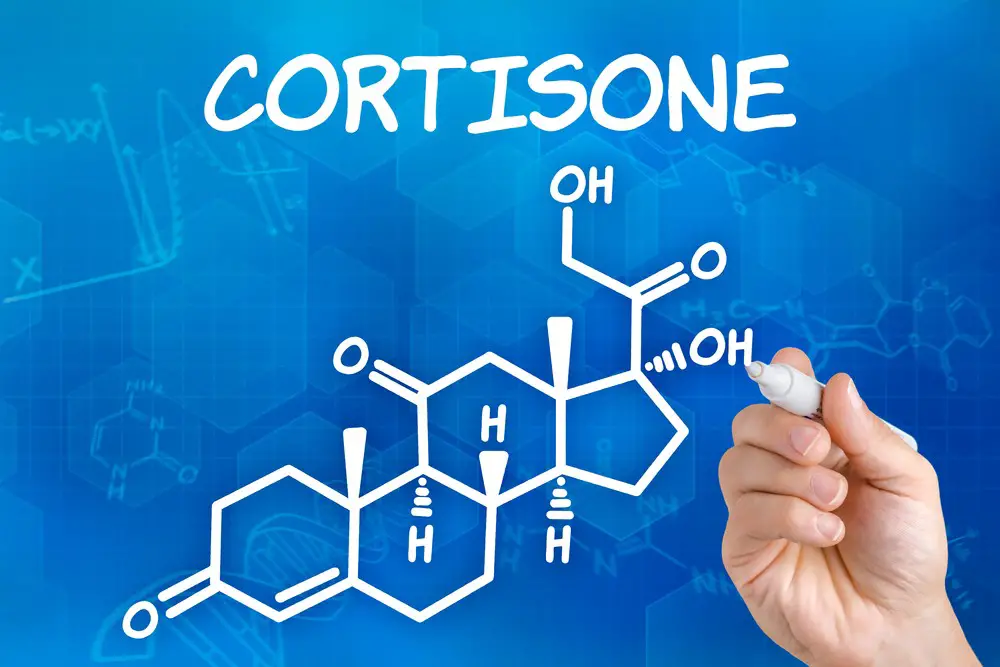As a BetterHelp affiliate, we receive compensation from BetterHelp if you purchase products or services through the links provided
Cortisone shots, also known as corticosteroid injections, are commonly used to reduce inflammation and relieve pain in various body parts. While they’re beneficial in many cases, some individuals have reported developing anxiety after receiving these injections. Understanding the relationship between cortisone shots and anxiety can help patients and healthcare professionals make informed decisions about their treatment options.
Anxiety is a natural response of the body to stress, and it’s essential to determine whether cortisone shots directly cause anxiety or indirectly contribute to it through other factors. Researching the common causes and factors related to patients experiencing anxiety after receiving cortisone shots can provide a more comprehensive understanding. Considering possible alternative treatment options and learning to manage anxiety after a cortisone shot can also be beneficial.
Key Takeaways
- Cortisone shots may be linked to anxiety in some cases
- Determining direct or indirect causes is essential for understanding the relationship
- Exploring alternative treatments and managing post-injection anxiety can be helpful for patients

Anxiety and Cortisone Shots
Everyone experiences stress occasionally, but anxiety becomes a more pressing concern when it interferes with daily life. Many factors can contribute to anxiety, and it may come as a surprise that cortisone shots are one of them.
Cortisone shots are powerful anti-inflammatory medications often prescribed to relieve arthritis, osteoarthritis, back pain, and tendonitis. These miraculous injections, however, come with a caveat – they may lead to increased anxiety for some individuals. Why is that, you ask? Let’s dive in and find out.
Cortisone, a synthetic version of cortisol, is a hormone the adrenal glands produce. Our adrenal glands play a crucial role in stress regulation and overall mood. Cortisol is considered the “stress hormone,” as its levels rise during physical or emotional stress, preparing our bodies to face challenges head-on.
Now, when a person receives a cortisone shot, their cortisol levels take a nosedive. As cortisone mimics cortisol, the body gets the cue to cease cortisol production temporarily. This sudden change in hormonal balance might lead to feelings of anxiety.
It’s important to note. However, this reaction is not universal. While some folks may experience anxiety following a cortisone shot, others may not feel any change in mood. As always, individual responses tend to vary.
Moreover, anxiety isn’t the only potential side effect cortisone shots may bring. Other effects include weight gain, insomnia, and increased blood sugar levels, to name a few. On rare occasions, cortisone may lead to more severe complications.
In conclusion, while anxiety and elevated cortisol levels are undeniably related, not everyone who receives cortisone shots might experience increased anxiety. As with most medications, seeking professional advice and carefully weighing the pros and cons is essential.

Common Causes of Anxiety Related to Cortisone Shots
Side Effects and Anxiety
While effective in treating inflammation and pain, Cortisone shots can lead to side effects that may trigger anxiety. Side effects such as dizziness, nausea, weakness, and insomnia are often reported after cortisone injections, causing patients to become anxious about their health. Additionally, restlessness, which might occur as a reaction to cortisone, can contribute to heightened anxiety levels.
Moreover, cortisone shots may have a direct effect on mental health. Some individuals may experience mood swings or worsening depression after receiving cortisone, adding to the anxiety that can plague patients.
Interactions with Medications
Another cause of anxiety following cortisone shots could be interactions with medications. Patients must inform their healthcare providers of any medications they take, as certain drugs might interfere with cortisone’s effectiveness or lead to complications.
For instance, cortisone shots could cause high blood pressure when taken alongside medications for hypertension. The increased high blood pressure can result in discomfort and fear, fueling anxiety. Furthermore, diabetes patients should be cautious, as cortisone shots could occasionally lead to elevated blood sugar levels, causing distress and anxiety about managing their condition.
Underlying Conditions
Cortisone shots can also bring about anxiety when they interact with pre-existing or underlying conditions. Although rare, infections around the injection site can aggravate anxiety in some individuals. People living with conditions like high blood pressure or diabetes may find themselves experiencing increased anxiety due to concerns about the impact of cortisone shots on their health.
Overall, while cortisone shots offer relief for many patients, one should be aware of some potential causes of anxiety. Communicating with healthcare providers about concerns, medications, or underlying conditions is essential to ensure the safest and most effective treatment.

Can Cortisone Shots Directly Cause Anxiety?
Cortisone shots, a type of corticosteroid, are commonly used to treat inflammation and discomfort associated with various medical conditions. However, considering their impact on the body’s metabolism and brain chemistry, it’s natural to wonder if these injections might induce anxiety.
Corticosteroids influence the brain’s stress response system, potentially causing mild stress-like reactions. But the silver lining is that these reactions are generally transient and subside as the medication is metabolized.
That being said, it’s essential to note that each individual’s response to cortisone shots is unique. While some may display mild symptoms like jitteriness or nervousness, others remain unaffected. Moreover, people with pre-existing anxiety disorders might be more susceptible to such side effects.
Sometimes, cortisone shots can cause indirect anxiety by disturbing other bodily processes. For example, corticosteroids have been known to trigger increased blood sugar levels or insomnia, exacerbating anxiety in those prone to it. Such cases, however, do not indicate a direct causation between cortisone shots and anxiety.
In conclusion, cortisone shots can affect individuals’ emotional states. While they don’t directly cause anxiety in most people, specific side effects and individualized responses may contribute to anxiety-like symptoms. Discussing your concerns and medical history with a healthcare professional before opting for cortisone shots or any other treatment is vital.

Managing Anxiety After a Cortisone Shot
Monitoring Side Effects
Experiencing side effects from a cortisone shot is possible, but typically, these are mild and short-lived. Common side effects include pain, swelling at the injection site, and mild redness. Watch for unusual symptoms like heart palpitations, sweating, or unexplained mood swings. Remember that some adverse reactions might be more challenging to notice, like changes in sleep patterns, appetite, or energy levels.
In rare cases, cortisone shots can lead to heightened anxiety or depression. It’s essential to monitor your emotional well-being, paying special attention to fluctuations in your mind. By being mindful of your body, listening, and observing, you’ll be better prepared to recognize and handle anxiety after a cortisone shot.
Practicing Stress-Reduction Techniques
To alleviate potential anxiety, incorporate stress-reduction techniques into your daily routine. Simple practices such as deep-breathing exercises, progressive muscle relaxation, and mindfulness meditation help your mind and body find equilibrium. Don’t be too hard on yourself; start slow and gradually build up consistency in your practice. Remember, every small effort goes a long way in managing anxiety.
Also, regular exercise and a well-balanced diet support overall mental and physical health. Not only do they improve mood and decrease stress, but they also promote feelings of well-being and resilience in the face of adversity.
Consulting with Your Doctor
In case your anxiety reaches a level where it interferes with your daily life, don’t hesitate to reach out to your doctor. They are there to support you through these challenging moments and will help you navigate your concerns related to cortisone shots or any coinciding anxiety.
Your doctor might suggest adjustments to your medication or recommend additional treatments to address the anxiety. Be open and honest with them about your symptoms and concerns, and trust they have your best interest at heart. By working closely with your doctor, you can confidently manage your anxiety while receiving the potential benefits of cortisone shots.
Feel free to use the table below as a reference for monitoring side effects and stress-reduction techniques:
| Side Effects to Monitor | Stress-Reduction Techniques |
|---|---|
| Pain & Swelling | Deep breathing exercises |
| Changes in mood | Progressive muscle relaxation |
| Sleep pattern changes | Mindfulness meditation |
| Appetite or energy fluctuation | Regular exercise & a balanced diet |
In conclusion, be vigilant of potential side effects, practice healthy stress-reduction techniques, and maintain a clear line of communication with your doctor to effectively manage anxiety after a cortisone shot. With these supportive strategies, you’ll regain control and thrive through healing.

Dealing with Repeated Cortisone Shots and Anxiety
Coping with anxiety often becomes paramount for patients who undergo frequent cortisone shots. As an effective treatment for inflammation and pain, corticosteroid injections can be a valuable asset in managing various medical conditions. However, the anxiety that may arise from repeated shots can be an ordeal. In this section, we’ll explore ways to handle the situation to maintain one’s equilibrium while benefiting from the healing effects of cortisone.
First and foremost, keeping an open line of communication with one’s doctor is essential. By expressing concerns and discussing potential side effects, patients can receive personalized guidance to help ease their anxiety. Doctors are adept at understanding each patient’s unique needs and providing tailored advice. When placing one’s worries to rest, asking the right questions can make all the difference.
Stress-reduction techniques like deep breathing, meditation, or progressive muscle relaxation can relieve anxiety. Engaging in such practices before receiving a cortisone shot can foster calm, alleviating residual apprehension. Moreover, it’s a boon to one’s overall well-being, as these self-care practices are invaluable for maintaining a healthy, balanced life.
Another tool in the battle against anxiety is the power of positive thinking. Adopting a more optimistic outlook can help overshadow negative thoughts about the cortisone injection, replacing anxiety with a newfound sense of serenity and poise. Trusting in the medical expertise of healthcare professionals and embracing an affirmative approach can do wonders for the heart, mind, and soul.
Lastly, consider seeking support from trusted friends or family members who understand the journey. They can offer a listening ear, share personal experiences, or even accompany patients to their injection appointments to provide emotional encouragement. This solidarity can often be the steadying hand one needs to face anxiety head-on.
Those receiving repeated cortisone shots can confront their anxiety with confidence and composure by employing such strategies. As they tackle their health challenges head-on, they’ll emerge stronger and better equipped to navigate life’s many twists and turns.
Alternative Treatment Options
Non-Steroidal Anti-Inflammatory Drugs and Analgesics
When facing arthritis and seeking pain relief, there are options beyond cortisone shots. One alternative is non-steroidal anti-inflammatory drugs (NSAIDs), such as ibuprofen and aspirin. These medications work wonders in alleviating inflammation and discomfort. Many individuals find solace in using these over-the-counter remedies, paving the way to a more manageable daily life.
Physical Therapy and Exercise
Physical therapy and exercise can be a godsend for those grappling with arthritis. Engaging in low-impact activities, like swimming or cycling, promotes joint flexibility and muscle strength. Meanwhile, icing the affected area assists in reducing inflammation and soothing pain.
For those with more severe cases like osteoarthritis and rheumatoid arthritis, a certified physical therapist can develop a tailored program. This personalized approach helps to regain mobility and improve overall well-being.
Natural Supplements and Diet
A balanced diet, brimming with arthritis-battling nutrients, can relieve pain. Foods rich in omega-3 fatty acids, such as salmon, possess anti-inflammatory properties that may alleviate discomfort.
In addition to a wholesome diet, some patients seek natural supplements. For instance, vitamin D is believed to benefit individuals with arthritis, as it helps maintain strong bones.
Another common supplement is glucosamine, which is known to potentially slow joint deterioration in osteoarthritis patients. However, it’s crucial to consult a healthcare provider before diving into the world of supplements, as each person’s needs are unique.
In conclusion, while cortisone shots might cause anxiety for some, alternative treatment options are available. Exploring NSAIDs, physical therapy, or natural supplements may provide much-needed relief for arthritis sufferers. Happy healing!
Frequently Asked Questions
Can side effects of cortisone shots include anxiety?
Yes, the side effects of cortisone shots can include anxiety for some patients. While anxiety from cortisone injections may not be as common as other possible side effects, it’s essential to be aware of the possibility and monitor one’s mental well-being after receiving the treatment.
Are there psychological impacts of cortisone injections?
Cortisone injections can cause psychological impacts in some individuals. Besides anxiety, patients may experience mood swings, irritability, and even insomnia. It’s crucial to consult with a medical professional if these symptoms occur, as they may need to adjust the treatment plan accordingly.
Do corticosteroid injections lead to anxiety in some patients?
Corticosteroid injections, a class of medications that includes cortisone, have been known to cause anxiety in a small percentage of patients. This side effect is not observed in all patients but should be considered when considering the overall advantages and risks of the treatment.
Is there a connection between steroid shots and feelings of anxiousness?
Steroid shots, which include corticosteroid injections like cortisone, have been linked to anxious feelings in some patients. While the exact mechanism that leads to this side effect remains unclear, it’s thought that it could be due to how these medications interact with brain chemistry, altering mood and emotions.
Can receiving a cortisone shot trigger anxiety symptoms?
Yes, a cortisone shot can potentially trigger anxiety symptoms in certain individuals. Patients must be mindful of their emotional state following a cortisone injection and promptly report any signs of anxiety or other psychological changes to their healthcare provider.
What are the common psychological side effects of cortisone injections?
Cortisone injections are generally well-tolerated but not without potential psychological side effects. In addition to anxiety, patients may experience mood disturbances, including mood swings, irritability, and even depressive symptoms. If any of these side effects occur, it’s essential to contact a medical professional to address these concerns and assess the best course of action.
- Breaking the Silence: Why Men’s Mental Health Matters More Than Ever - April 15, 2025
- How to Transform a Home’s Patio Space into a Relaxing Space - March 23, 2025
- 5 Strategies to Use a Cell Phone to Help Manage Your Stress - March 23, 2025
This site contains affiliate links to products. We will receive a commission for purchases made through these links.



